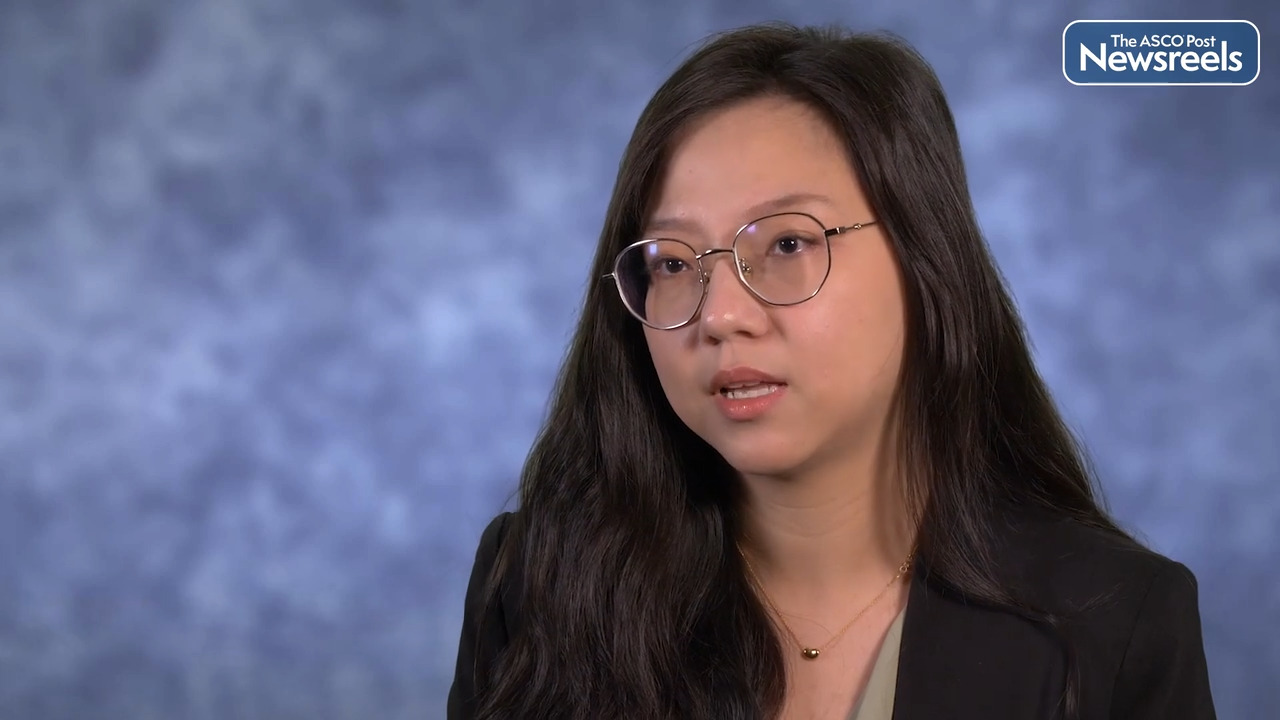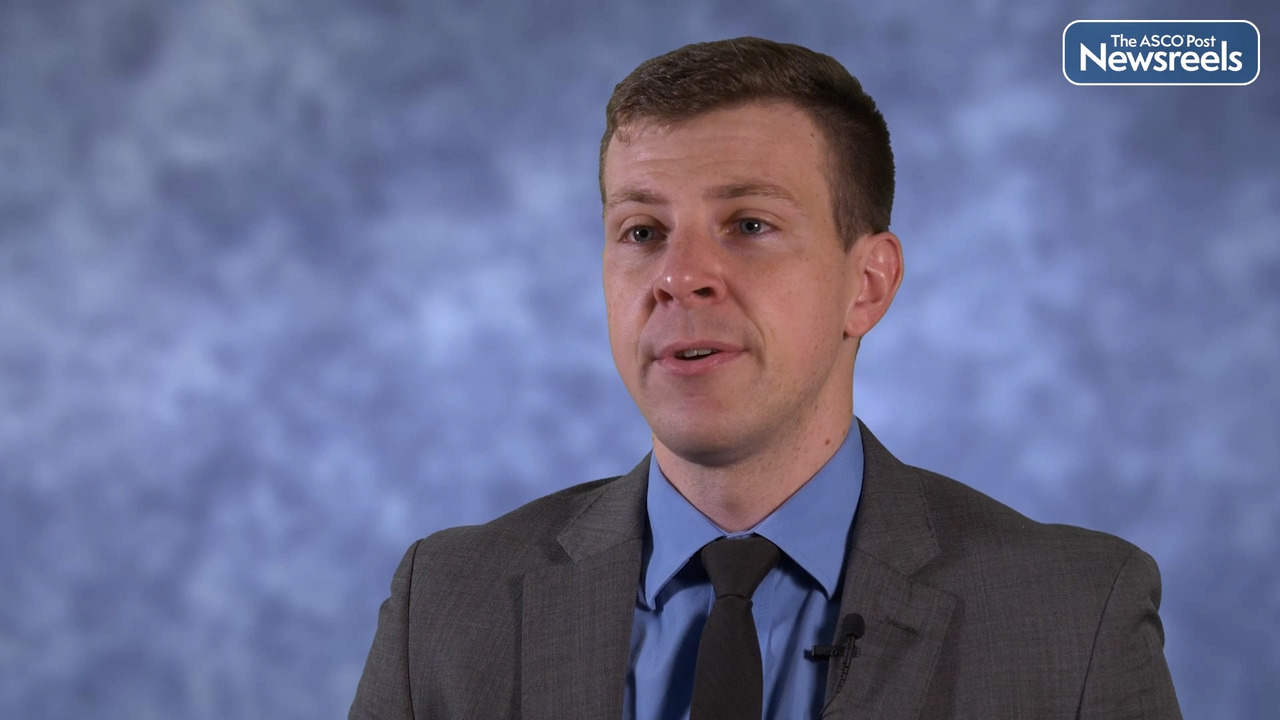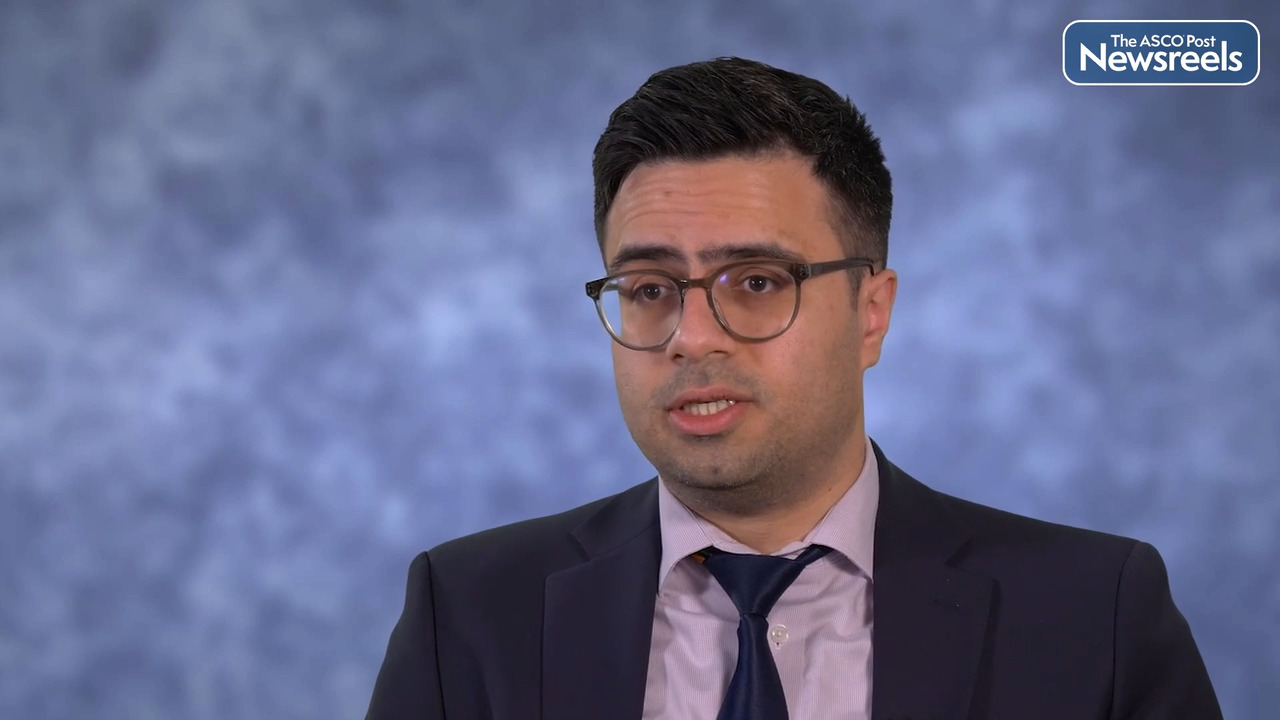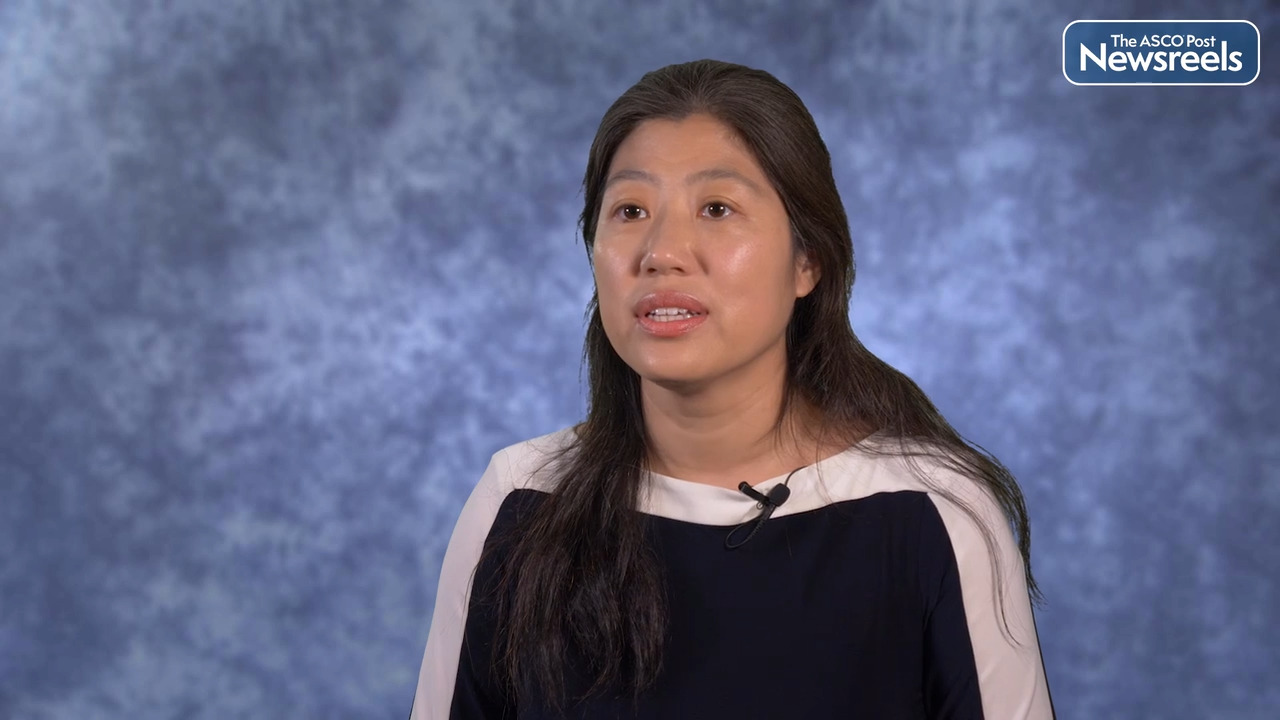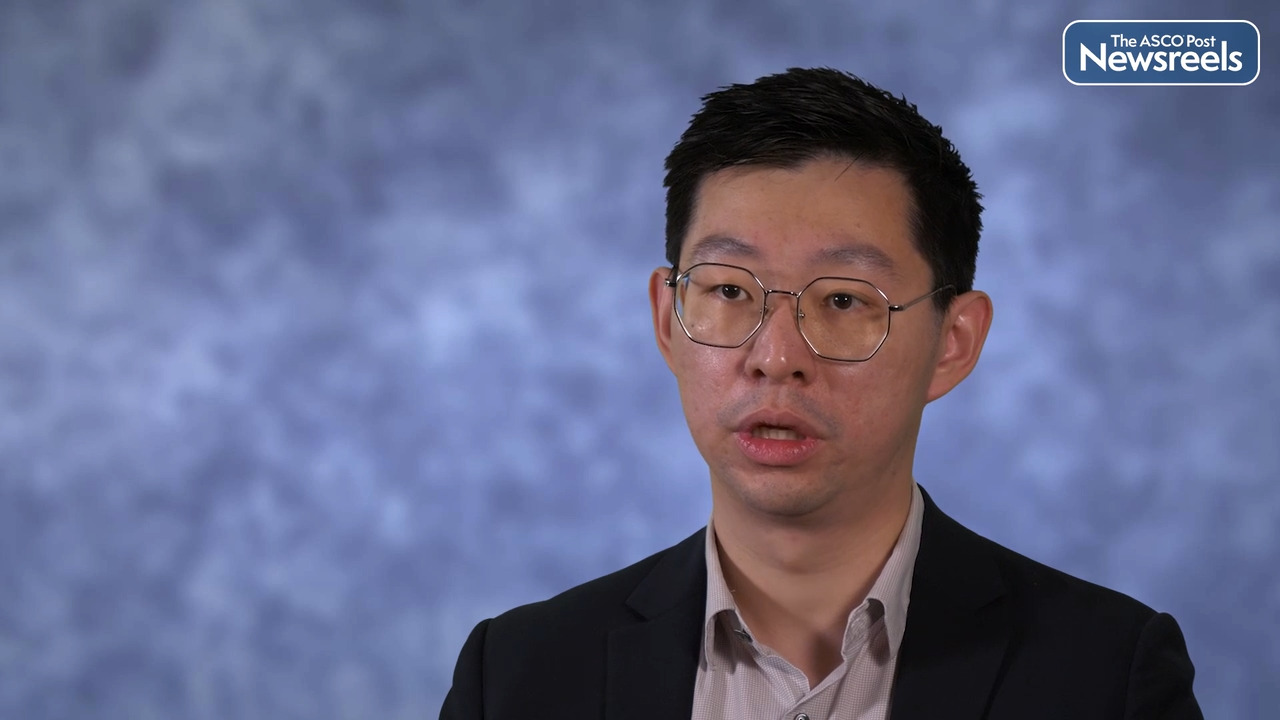Dawn L. Hershman, MD, on Prophylactic Colony Stimulating Factors for Neutropenia: Improving Clinicians’ Prescribing Practices
2022 ASCO Quality Care Symposium
Dawn L. Hershman, MD, of Columbia University College of Physicians and Surgeons, discusses findings that showed substantial variability in clinicians’ adherence to prescribing primary prophylactic colony stimulating factors in a pragmatic trial. Although the ability to opt out of the intervention is a feature of pragmatic trials, careful prestudy planning to estimate nonadherence is critical to ensure adequate power to detect an effect. Understanding reasons for intervention opt-outs may also inform future pragmatic studies aimed at improving adherence to practice guidelines.
Transcript
Disclaimer: This video transcript has not been proofread or edited and may contain errors.
We conducted a large pragmatic trial to understand whether a standard order entry for prophylactic G-CSF use would help with guideline concordance amongst patients that were getting high-risk chemotherapy regimens that put them at high-risk for febrile neutropenia. We also, in this intervention, gave sites an alert when they were giving low risk regimens not to give G-CSF.
The reason we did this is because NCCN Guidelines suggest that patients should get G-CSF for high risk and not get G-CSF for low risk. But despite that guideline by NCCN, a substantial number of patients have guideline discordant treatment. We know that some patients get too much and other patients get too little. While we were doing this, it became a perfect opportunity to test whether or not this same alert for or alert against would be useful in deciding how patients should be treated that had intermediate risk regimens where there's really no known benefit or harm from giving that medication.
We conducted this trial and in doing so, we found that sites that were randomized to the intervention, patients that got high-risk treatment had high likelihood of getting the regimen, whether they were in the intervention or not. Patients that were in that got low-risk chemotherapy had a low likelihood of getting G-CSF, whether they were in the regimen or not.
But what was interesting is that we looked at all of the different sites that participated and there were substantial variation from site to site. Despite sites being agreeing to be part of the study, some sites did not put patients on prophylactic G-CSF despite the fact that they were randomized to that arm and other sites did it universally. That was true whether or not sites were in the intervention or not. It's one of the challenges of doing a pragmatic trial because in a pragmatic trial, you want sites to behave like they would in clinical practice. But when you're doing a randomized trial, you want sites to behave as per the randomized arms.
What we did find is that in that intermediate arm where there was a lot of uncertainty about whether or not you should or shouldn't give it, having an alert in the system to give the medication resulted in a fivefold higher likelihood that patients would get prophylactic CSF compared to sites that were randomized to an alert not to give it.
This strategy of alert and avoidance is very successful in terms of driving medication use. But interestingly, in this setting where we didn't know what the benefits were, we were also able to document that there's no benefit to giving it, which we really didn't know before. So the NCCN Guidelines can now be modified so that we know not to give G-CSF for first line use prophylactically in patients with intermediate risk regimens because there is no benefit. We also know that guideline concordant alerts in the electronic medical record can be a successful strategy to change behavior. But we also found in that intermediate group where there was a secondary randomization, substantial variation from site to site.
So it's important to understand and mitigate that variation if we want to go on and do pragmatic trials in the future. So this trial in summary gave us a lot of insights into the design of pragmatic trials going forward to informed care.
That gave us a lot of insight in terms of where strategies for alerts in the electronic medical record may be more or less successful. It also gave us insights in terms of modifying NCCN Guidelines for giving prophylactic G-CSF in intermediate risk regimens where there really is no benefit.
Related Videos
The ASCO Post Staff
Qinjin Fan, PhD, of the American Cancer Society, explores the question of how mortgage discrimination is linked to lower rates of guideline-concordant care for patients with non–small cell lung cancer. This study highlights the critical need to understand the pathways through which mortgage denials may negatively affect the receipt of equitable care (Abstract 3).
The ASCO Post Staff
Justin M. Barnes, MD, of the Washington University School of Medicine, discusses the ways in which Medicaid expansion under the Affordable Care Act seems to affect distant diagnoses and cancer deaths per year, the differences in the impact of expansion between Black and White patients in the United States, and why insurance alone appears to be insufficient to overcome structural barriers to care for some populations.
The ASCO Post Staff
S. M. Qasim Hussaini, MD, of the Sidney Kimmel Comprehensive Cancer Center, Johns Hopkins Hospital, discusses findings from a nationwide study of the association between living in areas with discriminatory mortgage practices from the 1930s with present-day access to quality colon cancer care. The study underscores the importance of state- and federal-level practices on mortgage lending regulation and fair housing practices in determining equitable cancer risk, access to care, and outcomes (Abstract 69).
The ASCO Post Staff
Xuesong Han, PhD, of the American Cancer Society, discusses findings showing that among newly diagnosed patients with stage IV cancers, Medicaid expansion was associated with increases in receipt of palliative care, although overall usage was low. The increase varied by cancer type. Improving Medicaid coverage may facilitate access to guideline-based palliative care (Abstract 73).
The ASCO Post Staff
Changchuan Jiang, MD, MPH, of Roswell Park Comprehensive Cancer Center, discusses the lack of transportation as a potentially modifiable barrier to care for patients with cancer. Timely intervention may reduce visits to hospital emergency departments, lower costs, and improve outcomes (Abstract 70).
